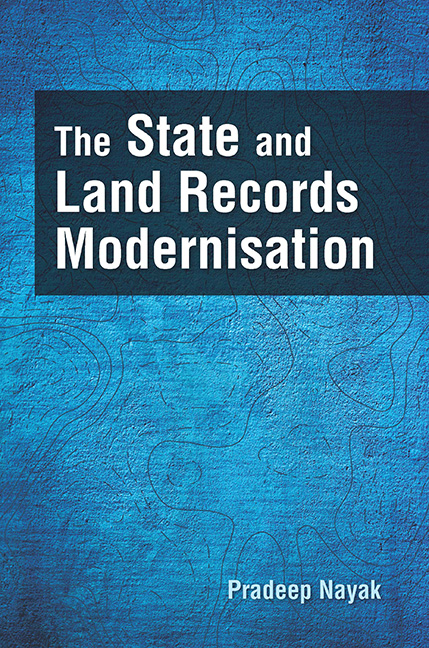Book contents
- Frontmatter
- Dedication
- Contents
- List of Figures and Tables
- Foreword
- Preface
- List of Abbreviations
- 1 The State, ICTs and Governance: A Theoretical Exploration
- 2 E-Governance in Public Policy Discourse in India
- 3 The State and the Policy of Land Records Management
- 4 The Computerisation of Land Records Programme in Odisha
- 5 The Computerisation of Land Records Programme in Karnataka
- 6 The Computerisation of Land Records Programmes in Karnataka and Odisha: A Comparative Study
- Conclusion: Beyond Techno-Managerial Governance
- Select Bibliography
- Index
6 - The Computerisation of Land Records Programmes in Karnataka and Odisha: A Comparative Study
Published online by Cambridge University Press: 02 December 2022
- Frontmatter
- Dedication
- Contents
- List of Figures and Tables
- Foreword
- Preface
- List of Abbreviations
- 1 The State, ICTs and Governance: A Theoretical Exploration
- 2 E-Governance in Public Policy Discourse in India
- 3 The State and the Policy of Land Records Management
- 4 The Computerisation of Land Records Programme in Odisha
- 5 The Computerisation of Land Records Programme in Karnataka
- 6 The Computerisation of Land Records Programmes in Karnataka and Odisha: A Comparative Study
- Conclusion: Beyond Techno-Managerial Governance
- Select Bibliography
- Index
Summary
Introduction
The CLR and SRA&ULR programmes started simultaneously in Karnataka and Odisha and in other parts of India as centrally sponsored schemes. We analyse here the different trajectories in achievements and constraints encountered by these states by comparing the processes, outcomes and impacts of these schemes which would broaden our understanding. The factors behind the success of computerisation of land records and online delivery of land records in Karnataka and the poor and dismal performance in Odisha will be analysed by comparing their administrative and institutional aspects in policy implementation and the capacity of the political and administrative elites to deliver the results.
In India, a wide variation among the states exists in terms of their political, administrative and economic performances and social and cultural composition. All the states show different trajectories of development during the British period as well as after Independence; the political, economic and cultural variables have been the determining factors in shaping the regime performances. In the macro context, we see different political issues at the central government level and at micro level, we perceive the political, social, economic and cultural issues among the states as varying. These differences have widened after Independence. The decline of the Congress party's dominance, the rise of regional parties, coalition governments at the centre and in some states, the rise of lower and the intermediate classes in the political arena, uneven socio-economic and regional developments, assertion of regional and ethnic identities, and the economic liberalisation policies pursued both at central and state government levels have been the crucial factors in shaping the inter-state differences in India. Although there is absence of a ‘general theoretical framework’ for studying the political and administrative developments among the states, yet the states in India continue to operate in an ‘independent political space.’
To Myron Weiner, our very understanding of the Indian political system depends upon the pattern of political developments across the states. Despite existence of some commonalities among all the states in India, like common constitution and common legal and administrative system, but in terms of socio-economic and political developments, there are wide variations among the states though each state is a political constituent of the Indian state.
- Type
- Chapter
- Information
- The State and Land Records Modernisation , pp. 259 - 289Publisher: Foundation BooksPrint publication year: 2015



